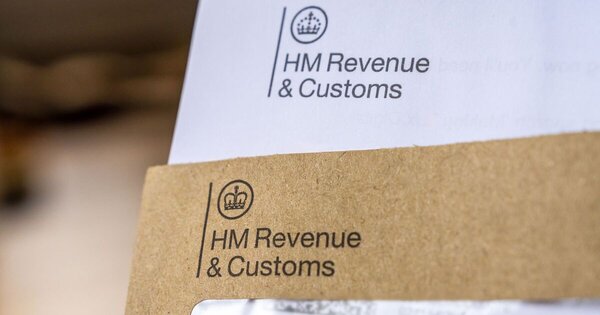Let’s Unpack This
Tax credits are payments from the government to help with everyday costs. Working Tax Credit supports people with low incomes, while Child Tax Credit helps those raising children.
It is important to manage other debts in relation to tax credits overpayments to ensure financial stability.
Sometimes, you might get paid more than you should have. This is called an overpayment and can happen if your circumstances change without HMRC being notified promptly. The Department for Work and Pensions (DWP) plays a significant role in managing overpayments, providing guidance on repayment plans and handling queries related to debts.
These changes might include your income increasing, children leaving home, work hours changing, or you starting to live with a partner. When these changes occur and you don’t tell HMRC quickly enough, you could end up owing money back. In cases of joint claims, HMRC can pursue one individual for the whole debt owed.
What is a tax credit overpayment?
A tax credit overpayment occurs when you receive more tax credits than you are entitled to for the year. This can happen due to various reasons, including errors in the tax credit calculation, changes in your circumstances that affect your benefit entitlement, or incorrect information on your benefit application.
Overpayments can also result from HMRC making a mistake in processing your claim. It’s crucial to understand that these overpayments need to be repaid, and knowing the reasons behind them can help you avoid similar issues in the future.

How overpayments occur
Overpayments can occur due to a variety of reasons, including:
Errors in the tax credit calculation
Changes in your circumstances that affect your benefit entitlement
Incorrect information on your benefit application
Failure to report changes in your circumstances to HMRC
HMRC making a mistake in processing your tax credit claim
For instance, if your income increases or your work hours change and you don’t inform HMRC promptly, you might receive more tax credits than you’re entitled to. Similarly, if there are errors in the information you provide or if HMRC makes a mistake, overpayments can occur. Keeping HMRC updated with accurate information is key to preventing overpayments.
Understanding your overpayment
If you receive a letter from HM Revenue and Customs (HMRC) stating that you have been overpaid tax credits, it’s essential to understand how the overpayment occurred and how it was calculated. You can request an explanation from HMRC, and they will provide you with more detail about how the award was calculated. You can also ask for an award calculation notice (TC647) to get more information about your tax credit award. This notice will break down the amounts you were paid and what you were actually entitled to, helping you understand the discrepancy.

What exactly is tax credits recovery and how much might I owe?
Tax credits recovery is the process where HMRC asks for overpaid tax credits to be returned. The amount you owe depends on what caused the overpayment and how long it continued. HMRC may use direct recovery to collect repayments directly from individuals who owe money.
Your TC602 award notice will show exactly how much you need to pay back. For example, if you were paid £4,000 in tax credits but were only entitled to £3,200, you’d owe £800. Changes in relationship status, such as separating from a partner or the death of one partner, can affect your tax credit claims. If you transition from a joint to a single claim and fail to report these changes promptly, HMRC's notional offsetting policy may impact the amount you owe.
The recovery amount varies considerably, from just a few pounds to several thousand, depending on the duration and nature of the incorrect payments. HMRC calculates this by comparing what you received against your actual entitlement. Making a claim for Universal Credit can also affect tax credit overpayments, as debts may be transferred to DWP, and it's important to communicate with HMRC regarding repayments and deductions from Universal Credit payments.
How will I find out if I need to repay tax credits?
HMRC will send you a letter if they believe you’ve been overpaid. This communication will explain their reasoning and detail the amount they think you owe. Additionally, you may face a county court claim for older debts, so it is crucial to address these notices promptly.
You’ll receive an official overpayment notice with a breakdown of the calculation and a response deadline, typically within 30 days. If you’re still receiving tax credits, your award notice will also show any overpayments from previous years. It is important to understand how HMRC decides on appeals and the timelines involved, as this can impact your ability to challenge their decisions effectively.
Don’t make the mistake I once made of ignoring these letters! Opening them promptly allows you to address the situation before it escalates and potentially incurs additional charges. If you are struggling to repay, you can contact the relevant authorities to negotiate smaller payment amounts spread out over a longer period.

Challenging Overpayments Mandatory reconsideration
If you disagree with the decision that you have been overpaid tax credits, you can ask for a mandatory reconsideration. This is a formal request to HMRC to review their decision. You must make this request within 30 days of the date on the revised award notice. If you are outside the 30-day period, you can still apply for a mandatory reconsideration within 13 months of the revised notice award, but you will need to show HMRC that there were special circumstances that meant you could not meet the 30-day time limit.
You can use Form WTC/AP to request a mandatory reconsideration. You should provide evidence to support your case, including any relevant documents or information that may have been missed during the initial decision-making process. HMRC will review their decision and may request more information from you. If they decide to uphold the original decision, you can appeal to the First-tier Tribunal.
How can I pay back what I owe for tax credits?
If you’re still getting tax credits, HMRC will usually reduce your ongoing payments automatically to recover the debt. For those no longer receiving tax credits but working, collection might occur through your tax code. Additionally, deductions from Universal Credit payments can be used to repay tax credit debts.
HMRC will send a separate payment request letter with instructions if you neither receive tax credits nor work. Payments may be handled directly from benefits or wages to ensure timely repayment. You can pay in one lump sum or request a payment plan for larger amounts.
Various payment methods are accepted, including Direct Debits, bank transfers, and debit card payments. HMRC’s Time to Pay arrangement allows you to spread the cost in a manageable way. The role of a former partner in managing overpayment debts from joint claims is also considered, with HMRC attempting to trace any former partners to communicate responsibilities regarding repayments.

What if I think the tax credits recovery amount is wrong?
Always check the calculation thoroughly as mistakes can happen. If you believe the amount is incorrect, you can request a ‘mandatory reconsideration’ within 30 days of receiving your notice. It is crucial to prioritize debts related to pensions to avoid serious consequences.
You’ll need supporting evidence, such as proof you reported changes on time or documents showing your correct circumstances. The COP26 process is specifically designed for disputing tax credits overpayments. Additionally, if you have social fund loans, it is important to communicate with Debt Management to discuss affordability and potential suspensions of repayment during financial hardship.
Keep copies of all correspondence and make detailed notes of any phone calls with HMRC, including dates, times and the names of representatives you spoke with. This documentation can prove invaluable if disputes arise. If you have a tax credit debt, understand that HMRC may transfer the debt to the Department for Work and Pensions (DWP) or use direct earnings attachments. Take necessary steps to address any challenges in repaying these debts promptly.
Can I get help if I can't afford to pay back my tax credits?
Yes, assistance is available! If repayment would cause serious financial hardship, HMRC might reduce the recovery rate or temporarily pause collection. Contact them about your situation as soon as possible. The Department for Work and Pensions (DWP) can also assist with managing overpayments, especially if you are transitioning to Universal Credit.
Free advice can be obtained from Citizens Advice or Tax Aid if you’re struggling with repayments. In some cases, HMRC might even write off the overpayment if it was entirely their mistake. As of April 5, 2025, tax credits ended, meaning individuals will no longer have tax credits to deduct from ongoing payments and may need to transition to Universal Credit while dealing with any owed overpayments to HM Revenue and Customs.
What should I do to avoid future tax credits overpayments?
Report any changes in your circumstances to HMRC immediately rather than waiting until renewal time. Keep all your paperwork organised and review award notices carefully when they arrive. Consulting a benefits adviser can provide valuable guidance on managing your tax credits effectively.
Update your income estimate if it changes during the year, especially if it’s likely to be higher than expected. Respond promptly to all HMRC queries, even if you believe they already have the information. Understanding the implications of court action related to overpayments is crucial, as certain recovery actions may not require court action but can still impact your finances significantly.

Final Thoughts on Tax Credits Recovery
Dealing with tax credits recovery can be stressful, but you don’t have to handle it alone. Professional support can make the process much more manageable. Further information can be accessed regarding overpayments and financial support.
Pie is the UK’s first personal tax app, dedicated to helping working individuals overcome their tax burdens. It offers integrated bookkeeping, real-time tax figures, simplified tax return processing, and timely expert advice. Deductions from Universal Credit payments, including those for debts, fraud penalties, and sanctions, can significantly impact your finances. Understanding these deductions and seeking advice can help manage financial hardship.
With the right support, you can resolve your tax credits overpayment and ensure you’re claiming exactly what you’re entitled to in the future. Remember, addressing tax issues promptly is always better than allowing them to accumulate. Understanding the final decision in the context of debt recovery and overpayment appeals is crucial, as it triggers strict time limits for challenges and disputes.











